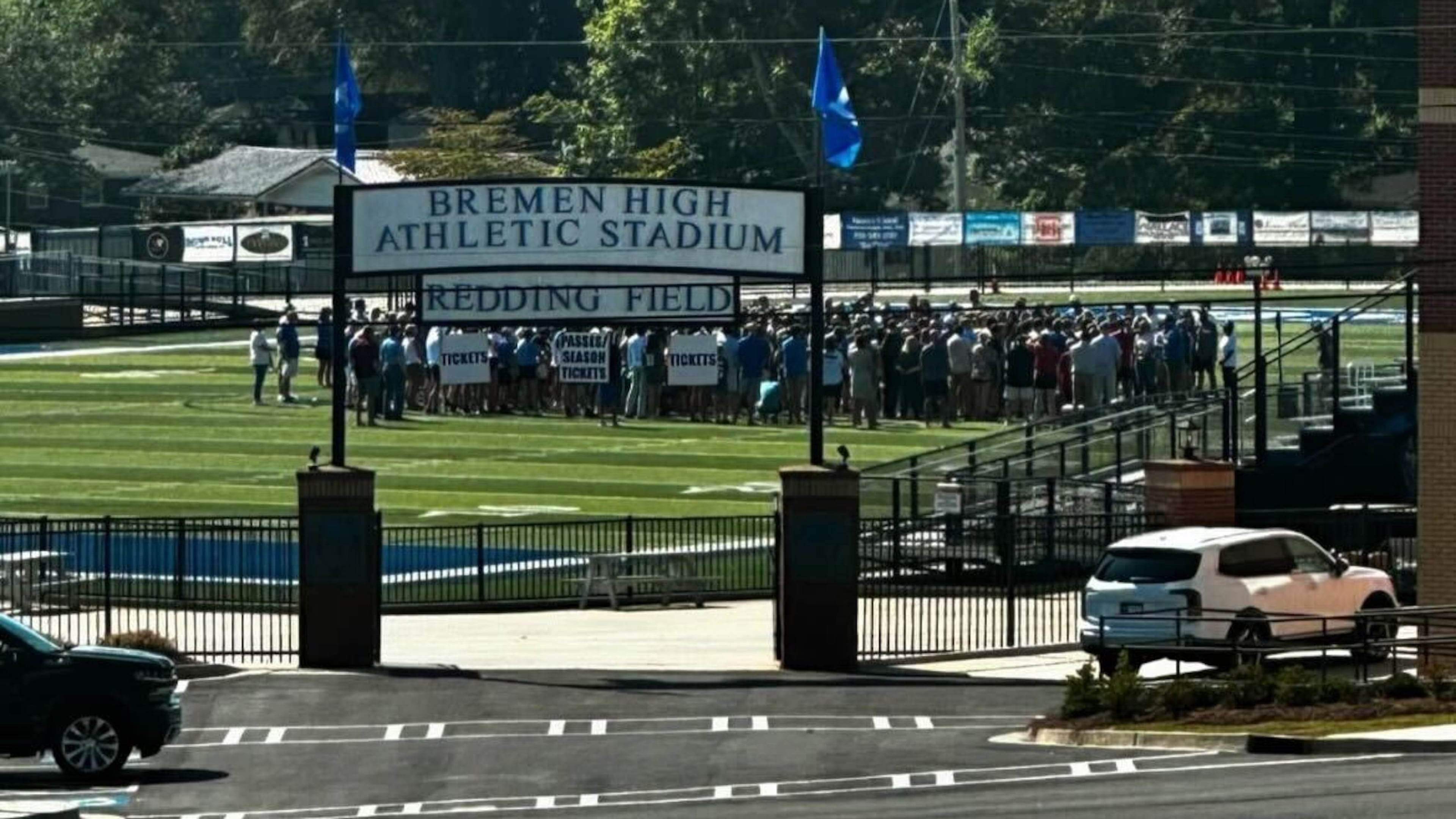Don’t give up on football. We need it.

Georgians were horrified to read the news of Bremen High School quarterback Carson Kimball sustaining a significant spinal injury in Friday’s game. This injury and deaths of high school football players must give each of us pause — time to reflect whether this game is worth it.
This is personal. I have four grandsons, all fifth grade and younger. I have played and coached football. From time to time, I get asked whether I want my grandsons to play this sport of gladiators.

Anyone who has played the game has been asked by fans whether we are hurt. That’s not the best question. The question should be “where are you injured?” Everyone who practices and earns playing time is hurt. Football is not a contact sport; it is a collision sport.
When I served as an assistant defensive line coach at a Division III university in Wisconsin, I asked a former head coach what made the difference between the best team in the conference and the aspiring teams. He said most teams are made up of two groups: the starting lineup and the other players who are just happy to be on the team.
Coach told me the best teams are made up of the starters and those who do everything they can to start. The difference is the drive by those who want to play — those who are not satisfied with just being on the team. This is a crucial point for what follows.
All the players are hurting. If they want to keep their starting positions, or if they are driving to become a starter, they will do everything to make it. Oftentimes, they will play through the injuries and not express the extent of those injuries.
I know this to be true, and anyone else who has played the game knows it to be true. Yes, we know the risks when we put on our helmet. But when you’re young, you think nothing will ever happen to you, so do we really know?
When I played, I played for the love of the game. I can’t express it any better than that. I loved playing football, the thrill and the excitement of excelling in physical matchups. I also had a fierce loyalty to my school and community — I didn’t want to let them down.
With all this said, your best athletes will push themselves. They strive toward excellence for myriad reasons. They know the risks, but they drive themselves beyond the worry of the risk.
The lessons we learn from football are incredible. Athletes learn to push themselves beyond their comfort zone, to get up when they are tired and unmotivated, to work hard and persevere for the team. Football players learn what it takes to succeed, to excel, to lead and to become an important part of something bigger than themselves. They certainly learn a sense of pride and determination.
Can they learn this from other places? I sure hope so; in fact, I know so. I have been surrounded by exceptional colleagues my entire career — professionals who have not played football but who have excelled in other sports, in orchestras and bands, in theater ensembles, and in academic clubs.
People rely on them, too. These individuals become leaders, colleagues whom we know we can count on, who can push us toward excellence, and who put in countless hours that no one else sees. They show the same attributes as the excellent football stars we watch every Friday night.
So, we know we can learn invaluable life lessons from so many high school endeavors. Each equally important. But don’t take away football. We need it. Football is uniquely American. I have played and coached in other sports and have led organizations and clubs. There is nothing like football.
Today’s athletes have much better equipment than ever before, and the rules and training protect players more than ever. It is such a tough and demanding sport. There will always be injuries. We need to keep looking for ways to improve the equipment, to teach safe techniques and to take care of these student-athletes.
For me, the hardest part is leaving the game when you can no longer play. That is a testament to how incredibly invaluable it is to young people. Football serves as a school and community beacon of excitement and pride. I can proudly say my team never lost to our across-town rivals.
I’m 63 years old now. My knees ache, I’ve had concussions, two dislocated shoulders, fractured fingers and a broken elbow, and my ankles are shot. I enjoyed playing basketball and baseball, but I loved football. Would I do it all over again? In a heartbeat. Put me in, Coach!
Are gridiron deaths and life-altering injuries worth it? No. Are the risks worth taking? Maybe so. Each player must make that decision on his own.
What about my four grandsons? I’m not going to persuade them into the sport, but I will not dissuade them. They can learn so many incredible life lessons outside of football, but I also think none can be surpassed by those learned on the gridiron. We are in that fraternity together.
Carson, we are all pulling for you.
Perry Rettig is a distinguished university professor and former vice president at Piedmont University. He played semi-professional football for the Fox Valley Force.


